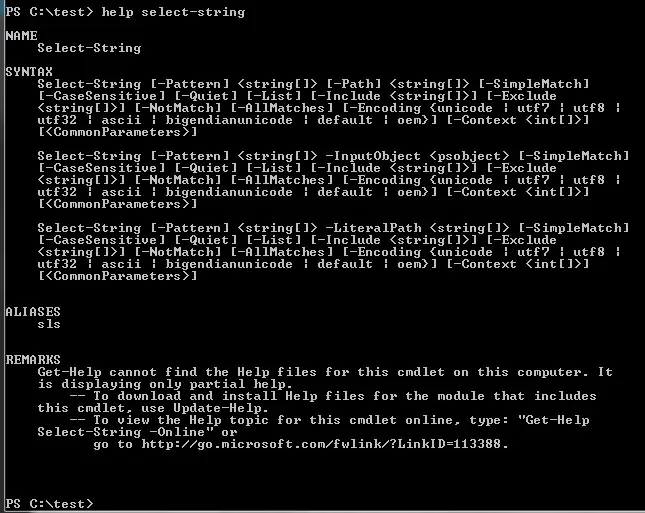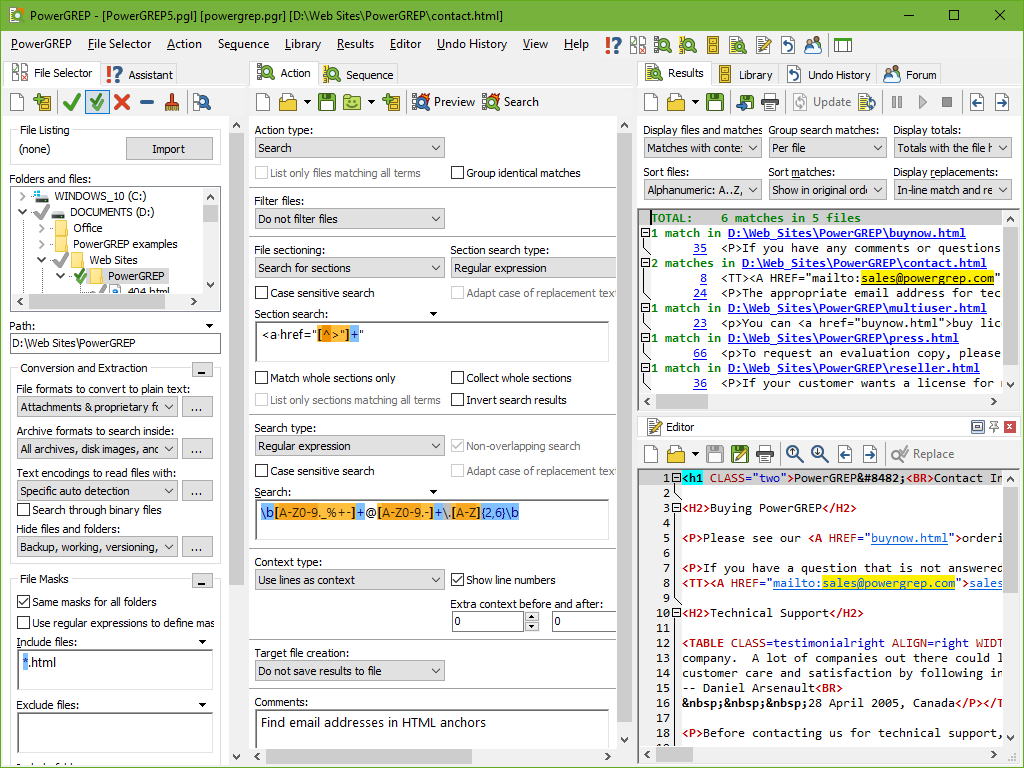

The ed text editor (also authored by Thompson) had regular expression support but could not be used on such a large amount of text, so Thompson excerpted that code into a standalone tool. McMahon analyze the text of the Federalist Papers to determine authorship of the individual papers. Thompson wrote the first version in PDP-11 assembly language to help Lee E.

Thompson's account may explain the belief that grep was written overnight. The next day he presented the program to McIlroy, who said it was exactly what he wanted. Responding that he would think about such a utility overnight, Thompson actually corrected bugs and made improvements for about an hour. Doug McIlroy, unaware of its existence, asked Thompson to write such a program. I hope you like this quick grep tip.Before it was named, grep was a private utility written by Ken Thompson to search files for certain patterns. Recursive search in all files in all the subdirectories of dir Recursive search in all the files in all the subdirectories Searches in all the files in dir directory Searches in all the files in current directory Here's a quick summary of using grep search for multiple files and directories: Grep Command Here's what excluding directories look like in our example here: Exclude directories from grep recursive searchĪnd yes, as demonstrated by the example above, the exclusion works with both -r and -R recursive options. You can exclude more than one subdirectory from the recursive search in the following fashion: grep -r -exclude-dir= serach_term directory_path grep -r -exclude-dir=dir_name serach_term directory_path I told you, grep is an extremely versatile command. If you are not in the directory where you want to perform the recursive search, just provide the absolute or relative path of the directory to grep command: grep -r search_term path_to_directory Bonus tip: Exclude a certain directory from the recursive grep searchĮverything seems good but what if you want to exclude a certain directory from the recursive search? There is a provision for that too. Take a look at the output of the -R search in the same example: grep -R recursive search also searches in the linked filesĭid you notice that it gives an additional search result with the linked.txt which is basically a symbolic link and was omitted from the grep search with -r option? The -R is dereferenced search which means it will follow the symbolic links to go to the original file (which may be located in some other part of the system). So, what's the difference grep -r and grep -R? Only one, actually. There is also a -R option for recursive search and it works almost the same as the -r option. Here's the result: Recursive search with -r option of grep command Here's the recursive search I performed in the previous example to do a grep search in the current folder: grep -r simple.

With this option, grep will look into all the files in the current (or specified) directory and it will also look into all the files of all the subdirectories. Grep provides a -r option for the recursive search. Grep recursive search in all subdirectories of a directory Now that you know that, let's see how you can perform a recursive search with grep so that it also looks into the files in the subdirectories. If you are not in the same directory where you want to perform, you can specify the directory path and end it with /* grep search_term directory_path/*īasically, you are using the wild card to expand on all the elements (files and directories) of the given directory. Search in all files of a directory with grep Since you cannot directly grep search on a directory, it will show "XYZ is a directory" error along with search results. This will search in all the files in the current directories, but it won't enter the subdirectories. The wild card actually substitutes with the name of all the files and directories in the current directory. To search for the word 'simple' in all the files of the current directories, just use wild card (*). Except empty.txt, all files contain the term 'simple' on which I'll perform the grep search. Here's the directory structure I am going to use in this example. Let me show you all this in details with proper examples so that it is easier for you to understand. You may also specify the directory path if you are not in the directory where you want to perform the search: grep -r search_term directory_path You can make grep search in all the files and all the subdirectories of the current directory using the -r recursive search option: grep -r search_term. It only searches in all the files in the current directory. If you want to search all the files in a directory with grep, use it like this: grep search_term * Usually, you run grep on a single file like this: grep search_term filename Grep is an excellent tool when you have to search on the content of a file.


 0 kommentar(er)
0 kommentar(er)
